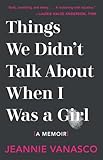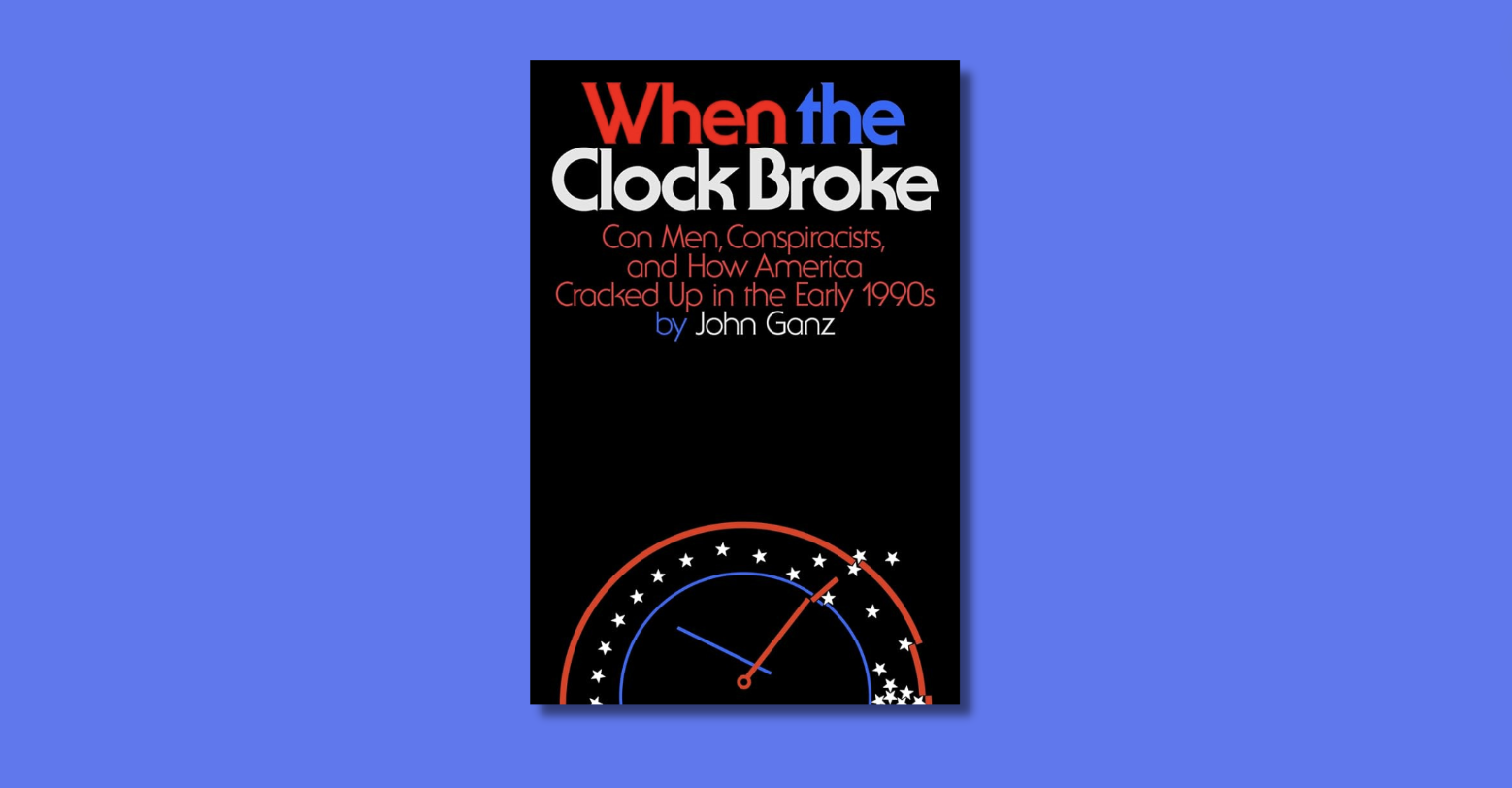Here’s a quick look at some notable books—new titles from the likes of Jeanette Winterson, Ben Lerner, Jaquira Díaz, Kate Walbert, and more—that are publishing this week.
Want to learn more about upcoming titles? Then go read our most recent book preview. Want to help The Millions keep churning out great books coverage? Then sign up to be a member today.
Frankissstein by Jeanette Winterson
 Here’s what Publishers Weekly had to say about Frankissstein: “Winterson (The Gap of Time) reimagines literary classic Frankenstein—both the story and the genesis of it—in her magnificent latest. The book shuttles back and forth between 1816, when a challenge leads Mary Shelley to write her indelible character and the monster he creates, and the present day, when a transgender man named Ry Shelley delves deeper into the burgeoning world and industry surrounding robotics and AI. A medical doctor, Ry supplies body parts to the professor Victor Stein, a brilliant if elusive man whose vision of the future is one in which human intelligence can transcend the limitations of needing a physical body. Victor’s interest in Ry is multifold: there is what Ry can procure for him through hospitals, and there is attraction—both romantic and platonic interest in the physical manifestation of Ry’s gender identity, which Victor calls ‘future-early’ and Ry calls ‘doubleness.’ Winterson’s recreation of the story of Mary Shelley’s creative process and later life and work is splendid, but it’s the modern analogue of the famous Lake Geneva party that is truly inspired. There is the hilariously crass sexbot entrepreneur Ron Lord, the evangelical capitalist Claire, and the nosy nuisance of Vanity Fair reporter Polly D, who’s constantly convinced she’s on to something. This vividly imagined and gorgeously constructed novel will have readers laughing out loud—and then pondering their personhood and mortality on the next page.”
Here’s what Publishers Weekly had to say about Frankissstein: “Winterson (The Gap of Time) reimagines literary classic Frankenstein—both the story and the genesis of it—in her magnificent latest. The book shuttles back and forth between 1816, when a challenge leads Mary Shelley to write her indelible character and the monster he creates, and the present day, when a transgender man named Ry Shelley delves deeper into the burgeoning world and industry surrounding robotics and AI. A medical doctor, Ry supplies body parts to the professor Victor Stein, a brilliant if elusive man whose vision of the future is one in which human intelligence can transcend the limitations of needing a physical body. Victor’s interest in Ry is multifold: there is what Ry can procure for him through hospitals, and there is attraction—both romantic and platonic interest in the physical manifestation of Ry’s gender identity, which Victor calls ‘future-early’ and Ry calls ‘doubleness.’ Winterson’s recreation of the story of Mary Shelley’s creative process and later life and work is splendid, but it’s the modern analogue of the famous Lake Geneva party that is truly inspired. There is the hilariously crass sexbot entrepreneur Ron Lord, the evangelical capitalist Claire, and the nosy nuisance of Vanity Fair reporter Polly D, who’s constantly convinced she’s on to something. This vividly imagined and gorgeously constructed novel will have readers laughing out loud—and then pondering their personhood and mortality on the next page.”
The Topeka School by Ben Lerner
 Here’s what Publishers Weekly had to say about The Topeka School: “Lerner made a huge impact on contemporary fiction with his two previous drawn-from-life novels, Leaving the Atocha Station and 10:04. With his latest, he leaves behind his typically erudite first-person protagonists in favor of a Kansas boyhood in the 1990s. For the time being, high school senior Adam Gordon can only dream of ‘a vaguely imagined East Coast city where his experiences in Topeka could be recounted only with great irony.’ But he is a brilliant member of the debate club and the son of two psychotherapists, Jonathan and Jane, who are tied to the Foundation, an experimental treatment facility where Adam is himself a patient of the eccentric (and possibly psychic) Dr. Kenneth Erwood. Readers delve deeper in the Foundation in evocative chapters narrated by Adam’s parents, who tell the story of their courtship, Jonathan’s extramarital affair with Jane’s best friend Sima, and adventures in academia. Also haunting the novel is the figure of Darren, a teenage outsider whose inclusion in Adam’s clique ends in a disastrous act of violence. Lerner’s greatest strength lies in interstitial period details in the zeitgeist: Bob Dole, Reverend Fred Phelps, and Tupac Shakur. Loosely plotted but riveting, this novel expertly locates the thread of the anxious present in the memory-stippled past.”
Here’s what Publishers Weekly had to say about The Topeka School: “Lerner made a huge impact on contemporary fiction with his two previous drawn-from-life novels, Leaving the Atocha Station and 10:04. With his latest, he leaves behind his typically erudite first-person protagonists in favor of a Kansas boyhood in the 1990s. For the time being, high school senior Adam Gordon can only dream of ‘a vaguely imagined East Coast city where his experiences in Topeka could be recounted only with great irony.’ But he is a brilliant member of the debate club and the son of two psychotherapists, Jonathan and Jane, who are tied to the Foundation, an experimental treatment facility where Adam is himself a patient of the eccentric (and possibly psychic) Dr. Kenneth Erwood. Readers delve deeper in the Foundation in evocative chapters narrated by Adam’s parents, who tell the story of their courtship, Jonathan’s extramarital affair with Jane’s best friend Sima, and adventures in academia. Also haunting the novel is the figure of Darren, a teenage outsider whose inclusion in Adam’s clique ends in a disastrous act of violence. Lerner’s greatest strength lies in interstitial period details in the zeitgeist: Bob Dole, Reverend Fred Phelps, and Tupac Shakur. Loosely plotted but riveting, this novel expertly locates the thread of the anxious present in the memory-stippled past.”
Things We Didn’t Talk About When I Was a Girl by Jeannie Vanasco
 Here’s what Publishers Weekly had to say about Things We Didn’t Talk About When I Was a Girl: “Vanasco (The Glass Eye) was raped during her sophomore year of college, and in this powerful memoir, she confronts her assailant, a man she calls Mark. Vanasco and Mark became friends at 13, and in 2003, while on break from Northwestern University, Vanasco attended a party at the house where Mark lived. She became drunk and Mark took her to his room in the basement. Vanasco graphically describes what followed: Mark undressed her, penetrated her vaginally with his fingers, masturbated over her while she cried, and told her: ‘It’s just a dream.’ Fourteen years later, Vanasco contacted Mark to discuss the assault and here delves into their uncomfortable email exchanges, phone calls, and meetings. Mark has become a remorseful loner, and reveals to her that he’s still a virgin. Vanasco worries about giving him a voice in her book: ‘But by interviewing him, I also can invert the power dynamic… he’ll probably come across as too defensive. And maybe I want that.’ In unadorned prose, the author interweaves her exchanges with Mark with stories of other predatory men she’s known, including a high school teacher who punished her after she rejected him. This is a painful reminder of the ugly ways some men treat women, and Vanasco’s nuanced story will resonate with those who’ve endured sexual inappropriateness in any form.”
Here’s what Publishers Weekly had to say about Things We Didn’t Talk About When I Was a Girl: “Vanasco (The Glass Eye) was raped during her sophomore year of college, and in this powerful memoir, she confronts her assailant, a man she calls Mark. Vanasco and Mark became friends at 13, and in 2003, while on break from Northwestern University, Vanasco attended a party at the house where Mark lived. She became drunk and Mark took her to his room in the basement. Vanasco graphically describes what followed: Mark undressed her, penetrated her vaginally with his fingers, masturbated over her while she cried, and told her: ‘It’s just a dream.’ Fourteen years later, Vanasco contacted Mark to discuss the assault and here delves into their uncomfortable email exchanges, phone calls, and meetings. Mark has become a remorseful loner, and reveals to her that he’s still a virgin. Vanasco worries about giving him a voice in her book: ‘But by interviewing him, I also can invert the power dynamic… he’ll probably come across as too defensive. And maybe I want that.’ In unadorned prose, the author interweaves her exchanges with Mark with stories of other predatory men she’s known, including a high school teacher who punished her after she rejected him. This is a painful reminder of the ugly ways some men treat women, and Vanasco’s nuanced story will resonate with those who’ve endured sexual inappropriateness in any form.”
Reinhardt’s Garden by Mark Haber
 Here’s what Publishers Weekly had to say about Reinhardt’s Garden: “Haber’s debut novel (after the collection Deathbed Conversions) is an exhilarating fever dream about the search for the secret of melancholy. The story opens in 1907, in the forests of Uruguay, as Croatian Jacov Reinhardt searches for Emiliano Gomez Carrasquilla, a reclusive writer who Reinhardt believes holds the key to understanding melancholy—an all-consuming emotion for Reinhardt and the subject of a treatise he’s desperately trying to complete. At the story’s outset, 10 men have already died on the expedition, and it seems to the book’s unnamed narrator, Reinhardt’s longtime factotum, that they’re going in circles. As the doomed expedition plods about, the narrator slips into his memories of Reinhardt: his cataloguing of different nationalities’ melancholic characters (‘A Russian was a downright brilliant melancholic but was in love with his own melancholia so that it was sentimental and embarrassing’), his construction of a weird castle in Stuttgart with fake walls and trap doors, and his relationship with a retired prostitute named Sonja. The true pleasure of Haber’s novel—a single paragraph—is how it swirls and doubles back on itself on both a story level, with memories bleeding into one another, and on a prose level: Reinhardt seeks ‘to unearth the melancholy at the root of joy, or perhaps the joy at the root of melancholy, because the order, he said, has always been immaterial.’ Haber’s dizzying vision dextrously leads readers right into the melancholic heart of darkness.”
Here’s what Publishers Weekly had to say about Reinhardt’s Garden: “Haber’s debut novel (after the collection Deathbed Conversions) is an exhilarating fever dream about the search for the secret of melancholy. The story opens in 1907, in the forests of Uruguay, as Croatian Jacov Reinhardt searches for Emiliano Gomez Carrasquilla, a reclusive writer who Reinhardt believes holds the key to understanding melancholy—an all-consuming emotion for Reinhardt and the subject of a treatise he’s desperately trying to complete. At the story’s outset, 10 men have already died on the expedition, and it seems to the book’s unnamed narrator, Reinhardt’s longtime factotum, that they’re going in circles. As the doomed expedition plods about, the narrator slips into his memories of Reinhardt: his cataloguing of different nationalities’ melancholic characters (‘A Russian was a downright brilliant melancholic but was in love with his own melancholia so that it was sentimental and embarrassing’), his construction of a weird castle in Stuttgart with fake walls and trap doors, and his relationship with a retired prostitute named Sonja. The true pleasure of Haber’s novel—a single paragraph—is how it swirls and doubles back on itself on both a story level, with memories bleeding into one another, and on a prose level: Reinhardt seeks ‘to unearth the melancholy at the root of joy, or perhaps the joy at the root of melancholy, because the order, he said, has always been immaterial.’ Haber’s dizzying vision dextrously leads readers right into the melancholic heart of darkness.”
Toil & Trouble by Augusten Burroughs
 Here’s what Publishers Weekly had to say about Toil & Trouble: “In his whimsical but thin latest, Burroughs reveals another odd facet of the famously dysfunctional family life he recalled in his bestselling Running with Scissors: witchcraft. Having received the ‘Gift’ of witchcraft powers from his mother and grandmother, witchery for Burroughs is not about flying broomsticks but rather visions, premonitions, and intense desires, focused by improvised ‘magick’ rituals, that somehow nudge ordinary life in a fortunate direction. (His first try ends in a schoolyard bully getting his comeuppance via a poetically fitting medical condition.) In adulthood, a series of spells enable him and husband Christopher to move from Manhattan to a dream house in rural Connecticut, and the book is at heart an affectionate, gently humorous portrait of their neurotic version of domestic tranquility, told through picaresque anecdotes sometimes tangentially related to magic. A ghostly voice sounds at the 200-year-old manse; a tornado blows through; raucous local eccentrics show up; Christopher soothes Burroughs’ manifold anxieties; Burroughs fusses over Christopher and dramatizes his own obsessions with decor, cleaning chores, landscaping, and dogs. The material is sometimes funny and touching, but too often it’s mundane—’the puppy is so perfectly behaved, not peeing once indoors.’ Burroughs’s fans will love his comic riffs, but others may not fall under the spell of this uninvolving saga.”
Here’s what Publishers Weekly had to say about Toil & Trouble: “In his whimsical but thin latest, Burroughs reveals another odd facet of the famously dysfunctional family life he recalled in his bestselling Running with Scissors: witchcraft. Having received the ‘Gift’ of witchcraft powers from his mother and grandmother, witchery for Burroughs is not about flying broomsticks but rather visions, premonitions, and intense desires, focused by improvised ‘magick’ rituals, that somehow nudge ordinary life in a fortunate direction. (His first try ends in a schoolyard bully getting his comeuppance via a poetically fitting medical condition.) In adulthood, a series of spells enable him and husband Christopher to move from Manhattan to a dream house in rural Connecticut, and the book is at heart an affectionate, gently humorous portrait of their neurotic version of domestic tranquility, told through picaresque anecdotes sometimes tangentially related to magic. A ghostly voice sounds at the 200-year-old manse; a tornado blows through; raucous local eccentrics show up; Christopher soothes Burroughs’ manifold anxieties; Burroughs fusses over Christopher and dramatizes his own obsessions with decor, cleaning chores, landscaping, and dogs. The material is sometimes funny and touching, but too often it’s mundane—’the puppy is so perfectly behaved, not peeing once indoors.’ Burroughs’s fans will love his comic riffs, but others may not fall under the spell of this uninvolving saga.”
Ordinary Girls by Jaquira Díaz
 Here’s what Publishers Weekly had to say about Ordinary Girls: “Díaz’s strong debut memoir charts her poor, violent childhood in Puerto Rico and Miami and her bumpy transition from girlhood to womanhood. The book opens in 1985 in Puerto Rico, where Díaz’s father, Papi, was a drug dealer and her mother, Mami, was an erratic personality who’d soon be in the grips of schizophrenia. Within a few years the family moved to Miami Beach, in pursuit of better opportunities. Díaz recalls that her parents were constantly fighting and uprooting her and her two siblings: ‘every new apartment would be smaller than the last.’ She writes about being a juvenile delinquent and ‘a closeted queer girl in a homophobic place,’ taking drugs, running away, getting married at 17, and being sexually assaulted. Her most gripping stories concern the women in her life: her angry maternal grandmother, who mocked her appearance; her paternal grandmother, who brought her joy and relief; and her mother, a ‘shattered creature’ whom she watched descend into mental illness and addiction. A turning point for Díaz comes toward the end of the book, when Díaz details how enlisting in the Navy at 18 gave her the stability she needed. Díaz’s empowering book wonderfully portrays the female struggle and the patterns of family dysfunction.”
Here’s what Publishers Weekly had to say about Ordinary Girls: “Díaz’s strong debut memoir charts her poor, violent childhood in Puerto Rico and Miami and her bumpy transition from girlhood to womanhood. The book opens in 1985 in Puerto Rico, where Díaz’s father, Papi, was a drug dealer and her mother, Mami, was an erratic personality who’d soon be in the grips of schizophrenia. Within a few years the family moved to Miami Beach, in pursuit of better opportunities. Díaz recalls that her parents were constantly fighting and uprooting her and her two siblings: ‘every new apartment would be smaller than the last.’ She writes about being a juvenile delinquent and ‘a closeted queer girl in a homophobic place,’ taking drugs, running away, getting married at 17, and being sexually assaulted. Her most gripping stories concern the women in her life: her angry maternal grandmother, who mocked her appearance; her paternal grandmother, who brought her joy and relief; and her mother, a ‘shattered creature’ whom she watched descend into mental illness and addiction. A turning point for Díaz comes toward the end of the book, when Díaz details how enlisting in the Navy at 18 gave her the stability she needed. Díaz’s empowering book wonderfully portrays the female struggle and the patterns of family dysfunction.”
Solar Perplexus by Dean Young
 Here’s what Publishers Weekly had to say about Solar Perplexus: “‘I don’t know what people mean/ by reality,’ Young (Shock by Shock) writes in the first lines of his celebratory 15th book of poetry, his first since a heart transplant in 2011. With a transformed attention to life’s shifts and minutiae, Young’s signature unmoored poetics style is filled with quick shifts and leaps as he examines life’s surreal moments and unexpected humor. Indisputably, Young’s poems unfold in ways that are impossible to paraphrase: ‘As in a love affair. As when a trumpet/ hovers in the air. The average cloud/ outweighs a bus. That strewed dust above/ is the universe.’ The first half of the poems collected resist narrative, or even the perspective of an ‘I.’ ‘The ultimate monster is always the self,’ Young notes, and when the self does appear in these poems, it often does through ungrounded observation, such as ‘I myself am a top.’ Throughout, Young reflects on the effects of poetry on language and his own life: ‘Poetry, I love/ you certainly without any irritable/ reaching after fact. Resistance/ makes you shine.’ There lies a particular pleasure in the deeply interior logic of these poems.”
Here’s what Publishers Weekly had to say about Solar Perplexus: “‘I don’t know what people mean/ by reality,’ Young (Shock by Shock) writes in the first lines of his celebratory 15th book of poetry, his first since a heart transplant in 2011. With a transformed attention to life’s shifts and minutiae, Young’s signature unmoored poetics style is filled with quick shifts and leaps as he examines life’s surreal moments and unexpected humor. Indisputably, Young’s poems unfold in ways that are impossible to paraphrase: ‘As in a love affair. As when a trumpet/ hovers in the air. The average cloud/ outweighs a bus. That strewed dust above/ is the universe.’ The first half of the poems collected resist narrative, or even the perspective of an ‘I.’ ‘The ultimate monster is always the self,’ Young notes, and when the self does appear in these poems, it often does through ungrounded observation, such as ‘I myself am a top.’ Throughout, Young reflects on the effects of poetry on language and his own life: ‘Poetry, I love/ you certainly without any irritable/ reaching after fact. Resistance/ makes you shine.’ There lies a particular pleasure in the deeply interior logic of these poems.”
She Was Like That by Kate Walbert
 Here’s what Publishers Weekly had to say about She Was Like That: “This collection of 12 stories from Walbert (His Favorites) creates a taut, clever, and disturbing portrait of motherhood. Fathers, living with the family or apart, do not share their wives’ disquiet. In ‘M&M World,’ a mother takes her daughters to the crowded candy-themed Times Square megastore and panics when she loses sight of her youngest girl. ‘Playdate’ is also set in New York City. Two six-year-olds play together while their mothers chat, until one mother reads the other’s list of things that make her nervous: crowds, school, shadows, playdates. ‘Conversation’ and ‘The Blue Hour’ feature women that feel emotionally stranded. ‘Do Something,’ ‘Slow the Heart,’ and ‘A Mother Is Someone Who Tells Jokes’ show women whose children are dead, ill, or impaired. Memories of deceased mothers haunt the protagonists of ‘Paris, 1994’ and ‘To Do.’ In ‘Radical Feminists,’ a mother of two runs into her long-hated sexist former boss. Set from the 1950s to the present, Walbert portrays mothers beset by worry, fear, and dissatisfaction as they try to accentuate joy in their children’s lives. This is a piercing, intimate, and exquisite collection.”
Here’s what Publishers Weekly had to say about She Was Like That: “This collection of 12 stories from Walbert (His Favorites) creates a taut, clever, and disturbing portrait of motherhood. Fathers, living with the family or apart, do not share their wives’ disquiet. In ‘M&M World,’ a mother takes her daughters to the crowded candy-themed Times Square megastore and panics when she loses sight of her youngest girl. ‘Playdate’ is also set in New York City. Two six-year-olds play together while their mothers chat, until one mother reads the other’s list of things that make her nervous: crowds, school, shadows, playdates. ‘Conversation’ and ‘The Blue Hour’ feature women that feel emotionally stranded. ‘Do Something,’ ‘Slow the Heart,’ and ‘A Mother Is Someone Who Tells Jokes’ show women whose children are dead, ill, or impaired. Memories of deceased mothers haunt the protagonists of ‘Paris, 1994’ and ‘To Do.’ In ‘Radical Feminists,’ a mother of two runs into her long-hated sexist former boss. Set from the 1950s to the present, Walbert portrays mothers beset by worry, fear, and dissatisfaction as they try to accentuate joy in their children’s lives. This is a piercing, intimate, and exquisite collection.”








